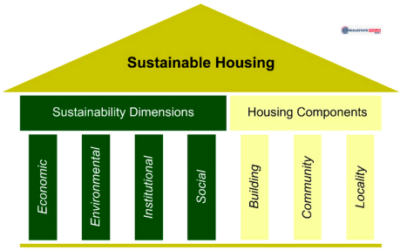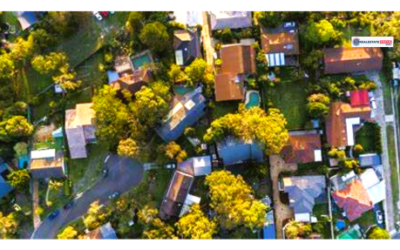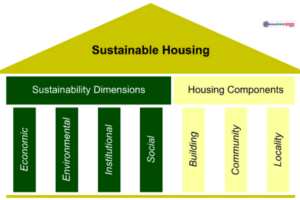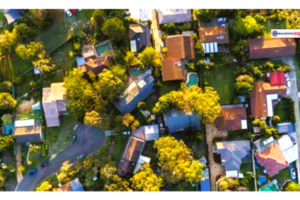

Singapore Industrial Investment Sales Up 26.6% to S$924.1M in Q4
In the fourth quarter of 2024, Singapore’s industrial sales saw a significant rise of 26.6%. The total sales value reached S$924.1 million, marking a strong performance in the sector. This growth reflects the continued demand for industrial properties in the city.
The increase in sales is largely driven by strong investor interest in logistics and warehouse properties. These types of industrial properties are crucial for supply chains and e-commerce, which have been growing rapidly.
As a result, investors are looking to purchase these assets for stable returns. Several large industrial property deals were completed in Q4, contributing to the rise in sales.
Notably, sales of logistics facilities were particularly high, as these spaces are essential for handling goods and meeting the demands of online retail. The strong performance of these property types signals confidence in the industrial real estate market.
The strong Q4 sales come after a year of recovery in the industrial market following the global pandemic. Businesses are now more focused on securing long-term, stable space for their operations.
This has led to greater demand for properties that offer both warehouse and office space in prime locations. Investors are also looking for industrial properties with good accessibility and location.
Singapore’s well-developed infrastructure and strong connectivity make the city a key location for logistics companies. This demand for well-located properties is driving prices higher, further boosting the sales numbers in Q4.
The rise in industrial sales is also a sign of broader economic growth in Singapore. The country’s strong performance in trade and logistics continues to support the demand for industrial real estate.
As Singapore remains a key global trading hub, the need for industrial facilities is expected to stay strong. Sales of multi-user industrial properties have been a key factor in the overall sales growth.
These properties, which cater to multiple tenants, are attractive to investors looking for diverse income streams. The increasing demand for these properties shows that investors are seeking stability in the industrial sector.
Singapore’s industrial sales have also been benefiting from government policies aimed at supporting the sector. The government’s focus on infrastructure development and logistics has created an environment that is favorable for industrial investments.
This has encouraged both local and international investors to continue making deals in the market. The Q4 sales growth is a clear indication that investor confidence in Singapore’s industrial market is returning.
Many investors, both domestic and foreign, are looking for opportunities to capitalize on the growth of e-commerce and global trade. This demand is expected to continue driving the industrial market in the coming months.
Despite the growth in sales, challenges still exist for some parts of the industrial market. The shift toward remote work and changing business needs has affected certain sectors, particularly in office space.
However, the logistics and warehouse segments of the market continue to perform well. Cold storage facilities have also seen an increase in demand due to the growing need for temperature-sensitive goods.
This trend is expected to continue, as industries such as food and pharmaceuticals require these types of facilities. The strong demand for cold storage is expected to remain a key driver of industrial sales in Singapore.
The growth of e-commerce is another major factor influencing the industrial market. As online shopping continues to increase, the need for warehouse and distribution spaces has risen.
E-commerce businesses require large, modern facilities to manage inventory and ensure timely deliveries. The trend of industrial properties being sold to real estate investment trusts (REITs) has also contributed to the overall sales growth.
These investment vehicles have been actively purchasing industrial properties to expand their portfolios. The growing role of REITs in the industrial sector is a positive sign for the market.
Singapore’s industrial real estate market has seen strong demand for both traditional and newer types of properties. In addition to warehouses, there is increasing interest in properties that support high-tech industries, such as data centers and research facilities.
This diversification of demand is helping to drive sales in the sector. As global trade continues to recover, demand for industrial properties in Singapore is expected to stay strong. The city’s role as a key logistics hub in Asia means that it will continue to attract investors looking for industrial real estate.
The positive Q4 sales results reflect the market’s resilience and growth potential. The strong performance of the industrial market in Q4 2024 indicates a positive outlook for the sector in the coming year.
With continued demand for logistics space, cold storage, and multi-user facilities, the market is set to remain active. Investors will likely continue to view Singapore as an attractive destination for industrial real estate investments.
Looking ahead, experts expect that the industrial sales market in Singapore will continue to thrive. The city’s position as a leading global trade hub will support ongoing demand for industrial properties.
This trend, combined with the growing e-commerce sector, will likely drive further sales growth in the coming quarters. In summary, Singapore’s industrial sales in Q4 2024 saw a significant increase of 26.6%, reaching S$924.1 million.
The strong demand for logistics, warehouse, and multi-use properties has been a major driver of this growth. With the ongoing recovery of the global economy and the rise of e-commerce, the industrial real estate market in Singapore is expected to continue performing well.




































